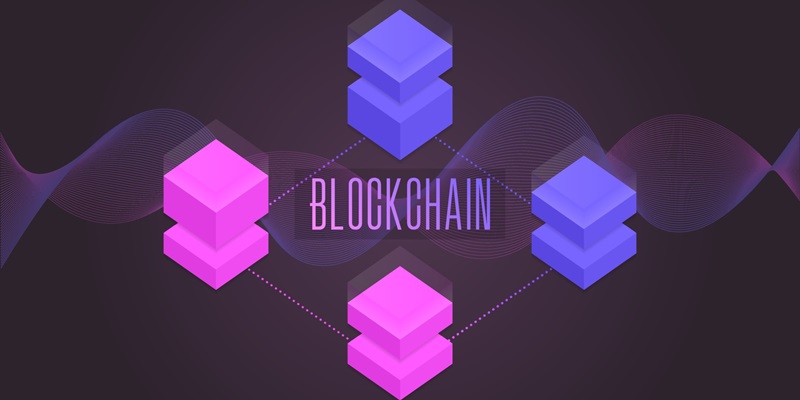In the ever-evolving landscape of technology, blockchain has emerged as a transformative force, promising to revolutionize industries across the globe. Its potential impact on various sectors is vast, from supply chain management to finance, and even governance systems. However, the adoption of blockchain technology is hindered by several challenges that businesses and decision-makers must overcome. This article explores these obstacles and delves into the evolving regulatory landscape, interoperability challenges, scalability concerns, privacy and data protection, and the opportunities blockchain presents in supply chain management, smart contracts, and decentralized finance platforms.
Obstacle to Adoption: Lack of understanding
One of the primary obstacles hindering the adoption of blockchain technology is the lack of understanding among businesses and decision-makers. Many are unfamiliar with the intricacies and potential applications of blockchain and how it can help streamline operations, enhance transparency, and create new business models. Overcoming this knowledge gap is crucial for industry-wide acceptance and implementation of blockchain solutions.
Evolving regulatory landscape
The regulatory landscape surrounding blockchain technology is still evolving. Governments and regulatory bodies worldwide are grappling with how to address the decentralized and cross-border nature of blockchain networks. Balancing the need for consumer protection, preventing fraud and money laundering, while also fostering innovation, is a delicate task. Clear regulatory frameworks are necessary to provide businesses and investors with confidence and security when engaging with blockchain technology.
Interoperability challenges
Blockchain is often viewed as a siloed technology, with different networks operating independently. Achieving interoperability between different blockchain networks remains a significant challenge. As industries explore blockchain applications on a larger scale, the seamless transfer of data and assets between different chains is essential. Developing standards and protocols that facilitate interoperability will unlock the full potential of blockchain technology.
Scalability concerns
As blockchain technology gains traction, concerns about scalability have become more pronounced. Traditional blockchains, like Bitcoin and Ethereum, face limitations in terms of transaction throughput and speed. As more users and organizations join blockchain networks, scalability becomes paramount to ensure seamless functionality. Scalability solutions, such as sharding, sidechains, and layer-two protocols, are being explored to address these challenges and enable widespread adoption.
Privacy and data protection concerns
While blockchain is renowned for its security features, concerns persist regarding privacy and data protection. The immutability and transparency of blockchain networks raise questions about personal data privacy and the potential for confidential information to be exposed. Striking a balance between transparency and privacy is imperative. Innovations such as zero-knowledge proofs and encryption techniques can enhance privacy on public blockchain networks, while permissioned blockchains offer more control over data access.
Revolutionizing supply chain management
Blockchain’s immutable and transparent nature can revolutionize supply chain management. By providing an unalterable record of transactions, blockchain technology enhances transparency and traceability throughout the supply chain. It can verify the authenticity and provenance of products, streamline logistics, reduce fraud, and improve inventory management. By digitizing and automating processes, blockchain can create more efficient and secure supply chains.
Automation opportunities with smart contracts
Smart contracts, which are self-executing contracts with the terms of the agreement directly written into code, offer immense opportunities for automation. Once certain conditions are met, smart contracts automatically execute actions, removing intermediaries and reducing the potential for human error. Smart contracts can power various applications beyond financial transactions, including those related to insurance, real estate, intellectual property, and supply chain management. Their tamper-proof and transparent nature ensures trust and efficiency in business interactions.
The rise of decentralized finance (DeFi) platforms
Blockchain’s decentralized nature has paved the way for the rise of decentralized finance (DeFi) platforms. These platforms leverage smart contracts to enable peer-to-peer lending, borrowing, and other financial services traditionally provided by intermediaries. DeFi democratizes access to financial products, empowers individuals, and reduces reliance on centralized institutions. However, challenges such as security vulnerabilities and regulatory uncertainty need to be addressed to ensure the sustained growth and stability of DeFi platforms.
The adoption of blockchain technology presents both challenges and opportunities for industries worldwide. Overcoming the lack of understanding, navigating the evolving regulatory landscape, achieving interoperability, addressing scalability concerns, and ensuring privacy and data protection are crucial steps towards maximizing blockchain’s potential. Moreover, the revolutionization of supply chain management, automation through smart contracts, and the growth of decentralized finance platforms highlight the transformative power of blockchain technology. As businesses and decision-makers embrace blockchain’s potential, collaboration, education, and regulatory clarity will be key in unlocking its full value and realizing the promise it holds for industries across the globe.

